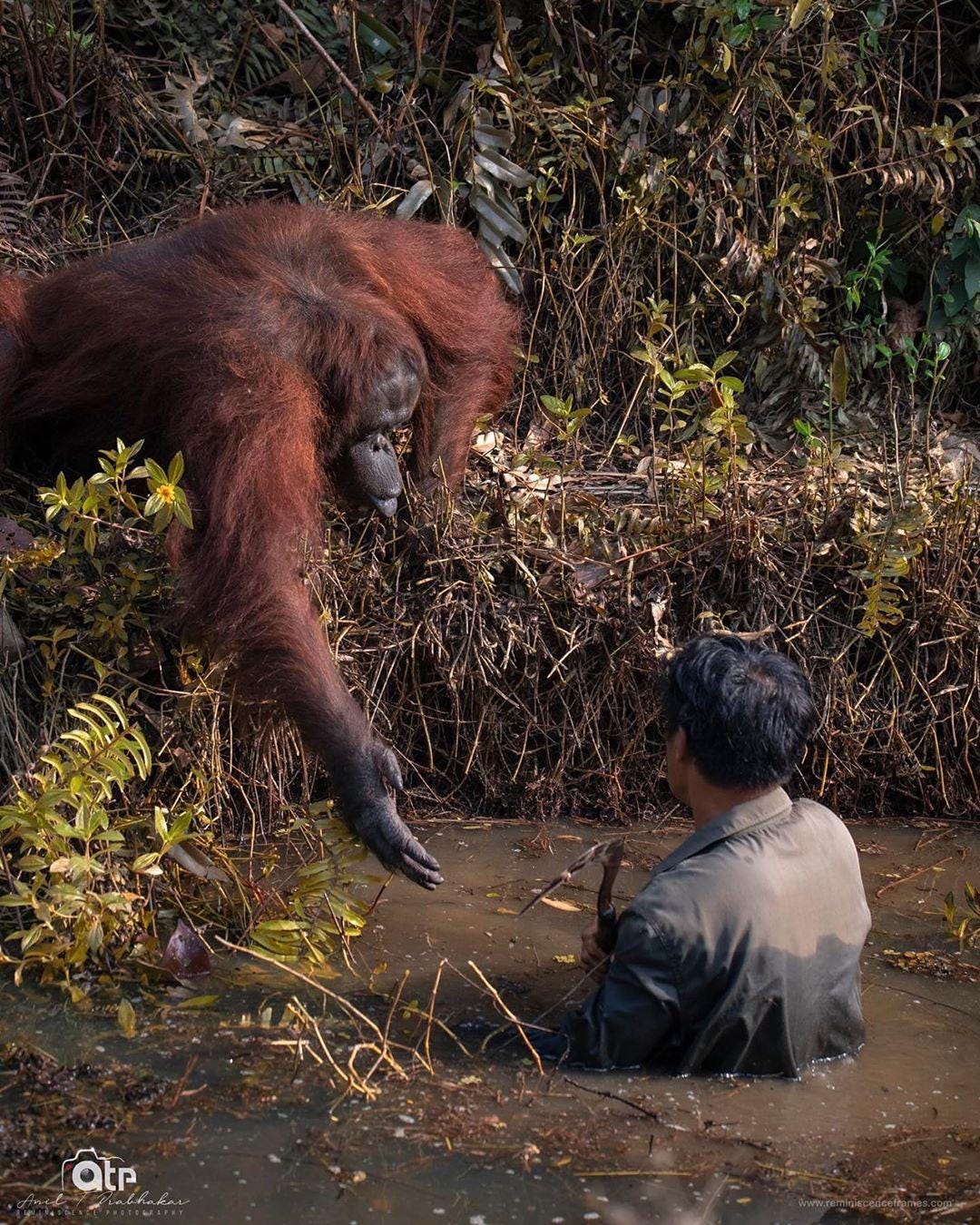Sunday BS #6: 03.10.21
Something on risk and uncertainty
Sunday BSers,
In my podcast interview with Gerald Ashley (to be published on 14.10.21), we discuss risk and uncertainty. We don't like disruptive change, because it's irregular, because it's unpredictable. As humans, we want to put everything on a risk scale, give it a probability. More data, more information and more sources of it encourage us to do that.
Even the biggest databases cannot eliminate uncertainty. Since all predictive data comes from the past, one black swan event, a single change in context can change human behaviour significantly and so can eradicate the past’s ability to predict the future.
It's unsettling when we realise that there isn't a single answer to a pandemic, that there isn't an all knowing person in a white coat to deliver us from evil. Religion is easier in this regard since who can argue with make believe? The British government's deliberate use of the definite article in reference to 'the science' was notable, and meaningless; an imposition of certainty and linearity when reality is far more stochastic.
Some more thoughts...
1) Certainty is an illusion
There was a palpable lack of leadership in some countries during the first waves of COVID. The UK dithered and doubted; the US showed that an ape would have offered a more caring hand. The only fair comparison between Trump and this orangutan is hair colour by the way.
The President of Purdue University, Mitch Daniels, said in his May graduation address, in regard to this lack of pandemic leadership:
"They let their understandable human fear of uncertainty overcome their duty to balance all the interests for which they were responsible."
Selfishness, trembling at reputational damage, paralysis from fulfilling a responsibility, Trump, in particular, wanted certainty not probability.
The astronomer Carl Sagan said: “The history of science teaches us that the most we can hope for is successive improvement in our understanding, learning from our mistakes… with the proviso that absolute certainty will always elude us.”
Certainty is an illusion. Perfect safety is a mirage. Zero is always unattainable, except in the case of absolute zero where all motion and life itself stop.
2) Leviathan man
Talking of life as motion brings me back to the dawn of enlightenment and Thomas Hobbes's 1651 'Leviathan', a tome on science, mathematics, religion and politics; arguably the first major writing on modern politics (in opposition to pre-modern politics where, in simple terms, the mass population was 'owned' rather than chosen/enabled by the state - try Machiavelli's 'The Prince' for this story; still much beloved by politicians today I believe).
Hobbes asks what it means to be alive, to be in motion; i.e. to be in animation vs. inanimate. If you’re a thinking, sane human, you want to keep moving. This brings conflict as we bounce into and off each other. We don't ultimately know what we're running for or towards, but we certainly know what we're running against - death.
Like the stochastic virus, life is not a neat race in which we run in our lanes. Hobbes sought to create some guidelines to manage our random collisions (he called these The Rules of Nature), a means to preserve our existence in a world where our interpretations of peace (certainty) were highly divergent. Worth remembering that Leviathan was written in the heart of the bloody, chaotic English Civil War.
So the more rational way to pilot risk and uncertainty is to let one person decide for us all, to determine what counts as 'peace' and to make choices on our behalf. They are the sovereign and that is modern politics.
Now of course we have our sovereignty back, so all is well.
3) Taking back control - of what?
Talking of sovereignty, let's talk about Brexit (or are you sick of this already?) and another of my Gerald Ashley topics - our overconnected society.
Technology has connected us around the world; by email, by social network, by supply chain. For some, this acceleration brought great riches and opportunity while for many it was an escort of disillusionment.
COVID has been a great leveller. It forced us, or the government did it for us, to disconnect. Our (supply) chains collapsed and we all stayed at home. Instead, we found alternative connection in nature and revelled in its calm and beauty. Why does it take a black swan to appreciate the white ones floating by? We are creatures of habit.
Brexit Leave voting was, in part, a rebellion against over-connectedness. Deeper European integration borne of the Maastricht Treaty in 1992 and the 2004 accession of eight new Central and Eastern European countries into the EU were central to this. Unfortunately, the English (specifically the English) failed to realise what a neat deal they actually had with the EU - let's not digress!
Less connection with technology, slowing down, has upside - more time for thought and real human connection. That's a Britain/world I'd like to take back control of. The Brexit version, the hankering for a more linear, less variable, pre-modern world, is sepia tinged and idealistic.
As Max Brooks, author of 'Devolution', says in his bloody horror tale: “It’s great to live free of the other sheep until you hear the wolves howl.”
Till next time.
This BS community is starting to pick up steam and the membership is growing faster than I could have hoped. Thank you for being a part of it. I put longer than I imagined into my writing and podcasts!
Referral is the most powerful recommendation. 68% of you are here via a ‘share’. If you liked this, why not share on Twitter or with a friend? It’s a kindness I always appreciate 😃
Have a great week!
Daniel






